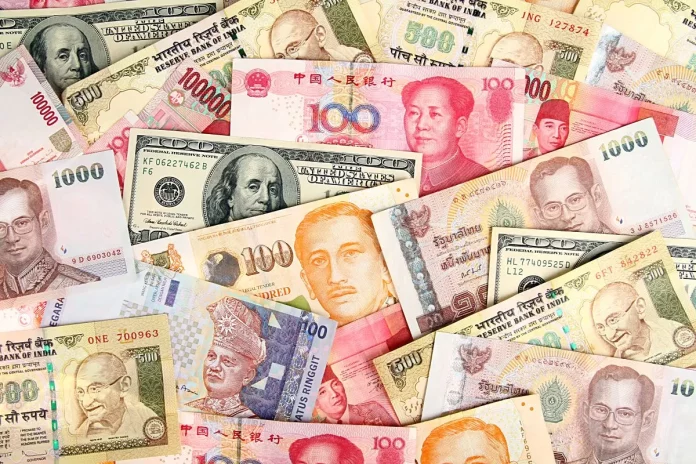Most Asian currencies fell on Monday (April 3), with the South Korean won suffering the biggest drop after the Organization of the Petroleum Exporting Countries announced a surprise cut in oil output that stoked fears about persistent inflation.
The South Korean won slumped as much as 1.5%, its worst day in about a month. The currency is emerging Asia’s weakest, having lost more than 4% on a year-to-date basis.
Brent oil futures rallied in early trade after Opec+ announced late on Sunday further oil production cuts of around 1.16 million barrels per day. That overshadowed market optimism over a softer reading of core inflation from the US on Friday.
A jump in oil prices usually results in a sell-off in riskier assets since it becomes more expensive for net oil importers to buy crude, thereby pushing up price pressures in countries with a large dependence on oil.
“The surge in oil prices due to a surprise production cut is a fresh risk to inflation and could potentially pose more downward pressure to sentiment-proxy, net importer Asian currencies, including the South Korean won and the Thai baht in the near term,” Christopher Wong, a currency strategist with OCBC said.
The Thai baht, Malaysian ringgit, Philippine peso and the Singapore dollar were hard hit by elevated crude prices, depreciating between 0.3% and 1%, according to Reuters.
Following the jump in crude prices, markets raised their expectations for the probability of further rate hikes, which provided a boost to the safe-haven US dollar.
The dollar index, which measures the strength of the greenback against six major currencies, was at 103.009 by 0335 GMT.
Markets are also keeping a close eye on US non-farm payrolls data due later this week for the outlook on interest rates.
Elsewhere, China’s factory activity growth slowed in March, falling below forecasts due to weaker demand while South Korean factory activity also shrank, adding to pressure on Asian currencies.
However, equities in Asia were on the front foot for the day, with stocks in Singapore and Malaysia gaining about 0.7% and 04%.
Other indices in Indonesia and the Philippines rose more than 0.2% each, though shares in Bangkok and South Korea shed 0.3% and 0.1%.
Markets in Taiwan were closed for a public holiday.







